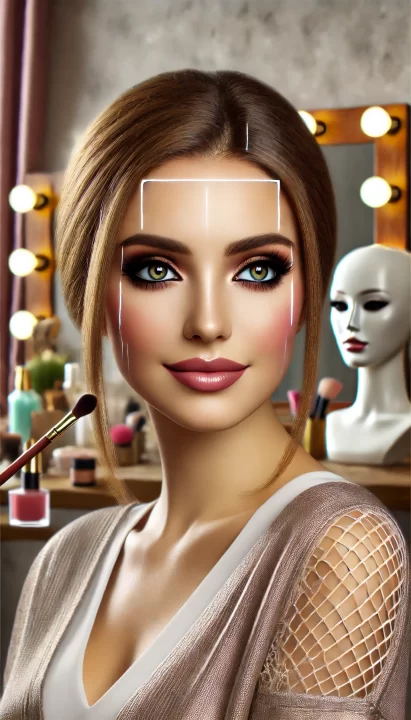The Day Anya Arrived
The day Anya joined our office, something shifted. Sure, she was beautiful—clear skin, bright eyes, the type of confidence that drew attention effortlessly—but it wasn’t just her appearance. It was how the whole office seemed to orbit around her. Male coworkers suddenly had plenty of time to “help” with her spreadsheets, even though they typically avoided Excel at all costs. Clients lingered longer during meetings, making small talk, laughing more easily. But what stood out most to me was how other women reacted. Conversations paused abruptly when she entered the break room. People whispered about her outfits, her makeup, her “too-perfect” hair. Somehow, she always seemed left out of lunch plans and casual coffee breaks.
Honestly, I felt it too. A weird tension settled in my chest—a vague mix of admiration and unease. It wasn’t pure jealousy, not exactly. It felt more complicated, and eventually I found a name for it: Pretty Envy.
What Exactly Is Pretty Envy?
Unlike the familiar concept of “pretty privilege,” which describes how attractive people—especially women—receive easier treatment, extra attention, or unearned advantages, Pretty Envy is quieter and more insidious. It grows almost exclusively between women, rooted in a twisted feeling that another woman’s beauty somehow threatens our own worth. We see someone effortlessly embodying the ideals we’ve struggled with our whole lives, and it stings. A voice inside us whispers: “Why does she have what I don’t?”
First Encounters with Pretty Envy – College Days
My first memory of Pretty Envy wasn’t from the workplace; it went all the way back to college. Priya, a classmate of mine, had this captivating charm that made everyone pay attention when she walked into the room. The boys followed her around campus, professors greeted her warmly, and she received attention without even asking for it. Behind her back, though, girls exchanged different narratives—casually labeling her as “flirty,” suggesting she had questionable morals, or insinuating that she used her looks to get good grades and internships. These weren’t things said openly, just enough whispers to slowly erode her reputation. It wasn’t until later that I realized how damaging those quiet remarks were—less a reflection of Priya and more about our own discomfort.
As Eleanor Roosevelt famously said,
“No one can make you feel inferior without your consent.”
Yet, we often consent quietly through envy.
The Subtle Ways Envy Creeps In
Pretty Envy rarely announces itself directly. Instead, it hides behind subtle jabs disguised as compliments: “You’re brave for wearing something so bold!” Or quiet exclusions, such as conveniently forgetting to invite someone to an important discussion or after-work event. There’s even the seemingly harmless gossip: “No wonder she got the promotion, look at her.” These comments quietly chip away at someone’s credibility, suggesting their looks are their only qualification. When the admired woman finally slips—a stain on her shirt or a stumble during a presentation—there’s often a quiet satisfaction among her critics.
Celebrity Narratives Fueling the Envy
Pop culture loves amplifying this narrative. Media outlets portrayed Taylor Swift and Katy Perry’s disagreements as catty rivalries fueled by jealousy rather than legitimate professional disputes. Megan Fox spent years trying to prove she had more than looks, as critics repeatedly dismissed her accomplishments. These celebrity examples might seem distant, but they resonate because they mirror what women quietly experience everywhere—from offices and classrooms to casual friend groups.
Confronting My Own Pretty Envy
When Anya joined our team, I noticed my own envy. At first, it felt uncomfortable, something I wanted to push away and pretend didn’t exist. But gradually, I realized naming it took away some of its power. Instead of dwelling on negative thoughts, I asked myself why exactly I felt bothered. Was it her easy-going confidence or how easily she connected with people? Soon I understood—it wasn’t her appearance that triggered me, but my own insecurities. Seeing Anya handle tough clients calmly reminded me of my fear of public speaking. Her bold style choices highlighted my reluctance to take fashion risks.
Turning Envy into Motivation
Rather than simmering in resentment, I decided to use these uncomfortable feelings as motivation. I enrolled in a speaking course. I experimented with clothes I previously avoided. Eventually, instead of feeling threatened, I found myself appreciating her qualities. One day, after she’d managed a particularly challenging client call, I walked over to tell her, sincerely, how impressive she’d been. To my surprise, she looked relieved—she admitted she’d been nervous the entire call. That simple exchange shattered the wall between us. I realized envy thrives on distance and silence; it loses strength when confronted directly.
As author Shannon L. Alder aptly put it:
“The only real conflict you will ever have in your life won’t be with others but with yourself.”
Creating a Healthier Environment
Workplaces and friend groups can do a lot to counter Pretty Envy by creating a culture where people feel secure and valued for more than just appearance. When leaders rotate important assignments fairly, celebrate different strengths openly, and quickly discourage gossip, attractiveness becomes just one trait among many, rather than the defining one.
Reflecting on Lessons Learned
Reflecting on Anya’s first weeks at the office, I wish I’d recognized Pretty Envy sooner. The tension, the subtle exclusions, the murmured gossip—none of it helped any of us. Understanding this has made me determined not to fall into the same pattern again. Because ultimately, someone else’s beauty or charm doesn’t diminish ours. Beauty isn’t a limited resource; it’s diverse and abundant, like stars spread across a night sky. When we let go of the belief that another woman’s success dims our own, we open ourselves to stronger friendships, genuine collaboration, and the freedom to celebrate everyone’s individual brilliance—including our own.
As writer Marianne Williamson famously said,
“As we let our own light shine, we unconsciously give other people permission to do the same.”









